I Got a Scalp Massage at a Head Spa, And I Noticed These 4 Amazing Changes

Who doesn’t enjoy a scalp massage when getting shampooed during a haircut? I certainly love it, though it’s usually over in five minutes if I’m lucky. So, when Instagram started bombarding me with videos of all the new head spas popping up, I was intrigued. But a couple hundred dollars seemed steep for a treatment I wasn’t familiar with and felt I didn’t need. Therefore, when the team behind the new seborrheic dermatitis treatment Zoryve invited me to Yukie Natori New York Head Spa, I immediately jumped at the offer. Turns out, I did need the treatment, and I learned that there’s so much more to scalp health than I ever thought.
RELATED: 7 Best Hydrating Face Masks for Glowing Skin.
1
My scalp spoke to my overall well-being.
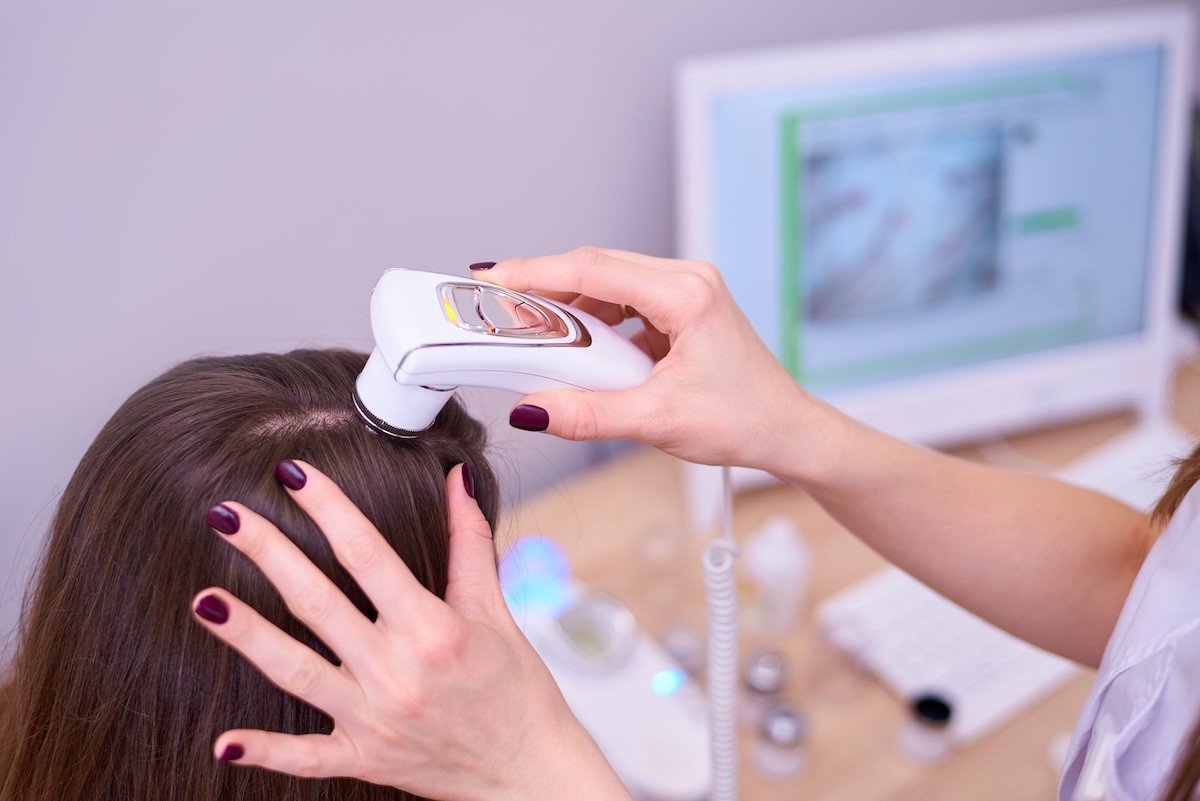
What surprised me most about my visit to the head spa was what I saw under the scalp camera, a little device that sends a magnified view of your scalp to a nearby screen. Overall, my scalp was healthy, as evidenced by the clear, whitish skin throughout most of my head.
However, when my spa therapist got to my hair line, the skin was red. “Are you stressed?” she asked me. Yes, I was quite stressed. “Have you been sleeping well?” she next wondered. I’m a notoriously bad sleeper.
As Anabel Kingsley, brand president and consultant trichologist at Philip Kingsley, explained to Glamour UK, “Your scalp and hair are very much influenced by hormonal fluctuations—and stress can disrupt your hormone levels. Specifically, stress spikes cortisol (aka stress hormone) levels, which in turn can increase sebum (oil) production on your scalp.”
“Stress hormones can also disrupt the skin’s barrier function, and trigger skin irritation and inflammation,” she added. “This is why you may find that your scalp gets itchy, flaky and overly sensitive and greasy when you are going through a stressful period.”
2
A scalp massage did wonders for my mental health.
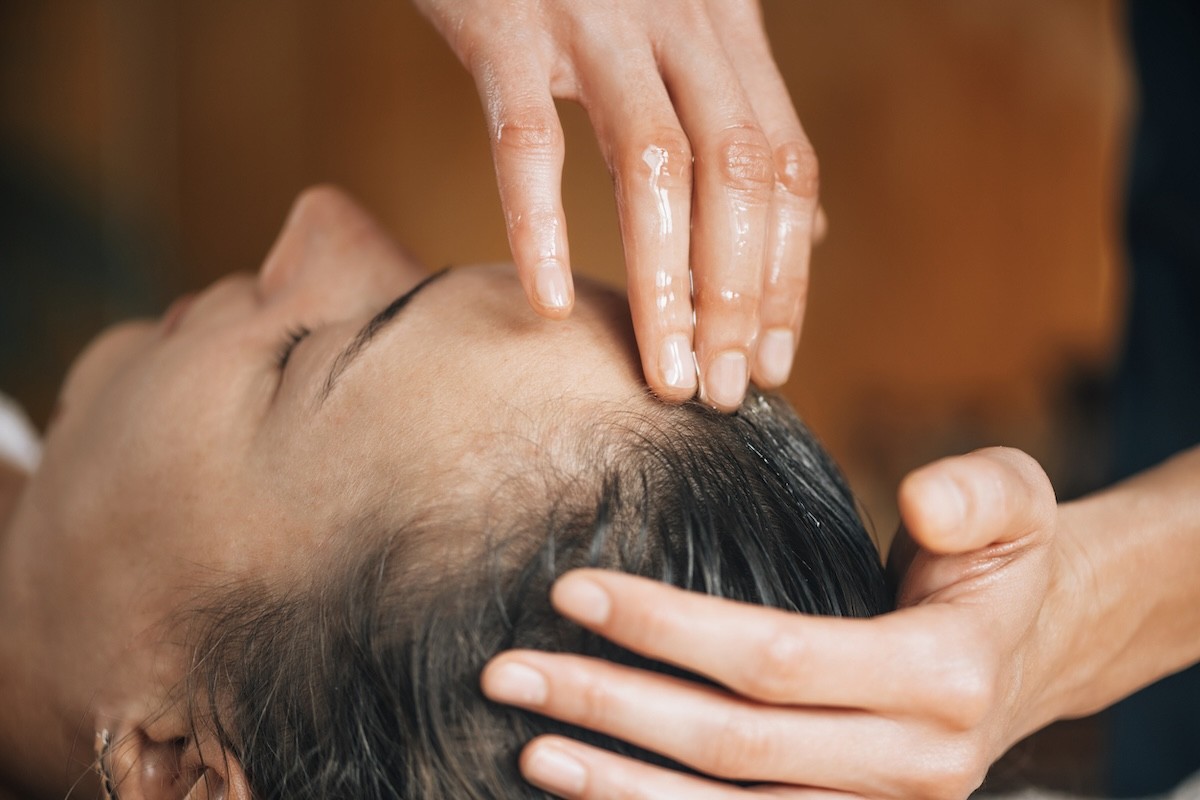
Speaking of stress, the relaxing effect of my scalp massage cannot be understated.
My treatment began with a neck and shoulder massage to stimulate blood flow and the lymphatic system in this region. Of course, for someone who types at a computer all day, this was heavenly.
Then, we moved into the scalp treatment room, where I lay on a reclining chair with my head resting in a sink. (Do note that I was completely parallel; my neck was not uncomfortably positioned like at a hair salon.)
My spa therapist then applied a moisturizing treatment to my scalp and wrapped my head for a 15-minute aromatherapy steam session. This was followed by various other treatments and several shiatsu scalp massages.
I initially wondered if a scalp massage could be as relaxing as the full-body massages I’m more accustomed to. The answer: Yes, it can. Similar to how a foot massage stimulates different of your body, I felt the effect of the massage throughout my entire body.
There is plenty of evidence to support the mental health benefits of scalp massages, too.
One study examined the effects of 15- to 25-minute scalp massages on female office workers in Korea. After 10 weeks, “positive effects were observed on stress hormone, blood pressure and heart rate.”
Another Korean study found that men and women who performed self-scalp massages had lower degrees of depression, cognitive impairment, and anger.
RELATED: 9 Best Exfoliators for Sensitive Skin You Should Switch to Now.
3
My hair is more voluminous after my scalp treatment.
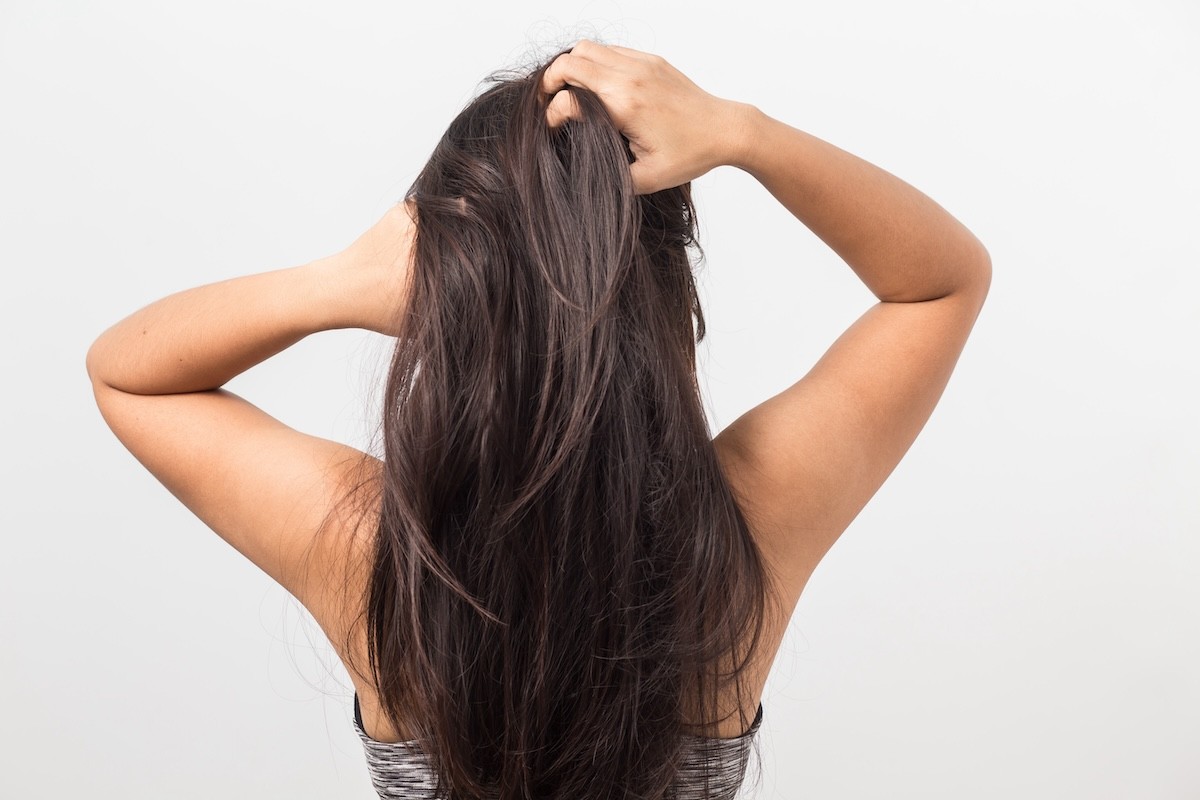
Another interesting thing I saw on the scalp camera was how my hair came out of the follicle. While most of my strands emerged from my scalp in a straight line (I have naturally straight hair), some were awkwardly bent, which my therapist told me contributed to a lack of volume.
After my treatment, the camera showed all of my strands coming out straight, and my hair was, in fact, more voluminous.
As for why this happens, researchers are still not 100 percent certain. However, as the salon explains on their website, “Stimulation of points on the scalp which is connected to the whole body activates the capillaries that feed nutrients to the hair and provides the care needed for the growth of hair. It normalizes the blood circulation and the lymph flow in the scalp and creates a foundation for the healthy growth of hair.”
To their point, a 2016 study found that healthy Japanese men (with no history of hair loss) had thicker hair after six months of receiving a daily scalp massage. The researchers concluded that “stretching forces result in changes in gene expression in human dermal papilla cells.” In other words, the massage stretches the hair follicles, spurring growth.
4
My scalp is less oily.
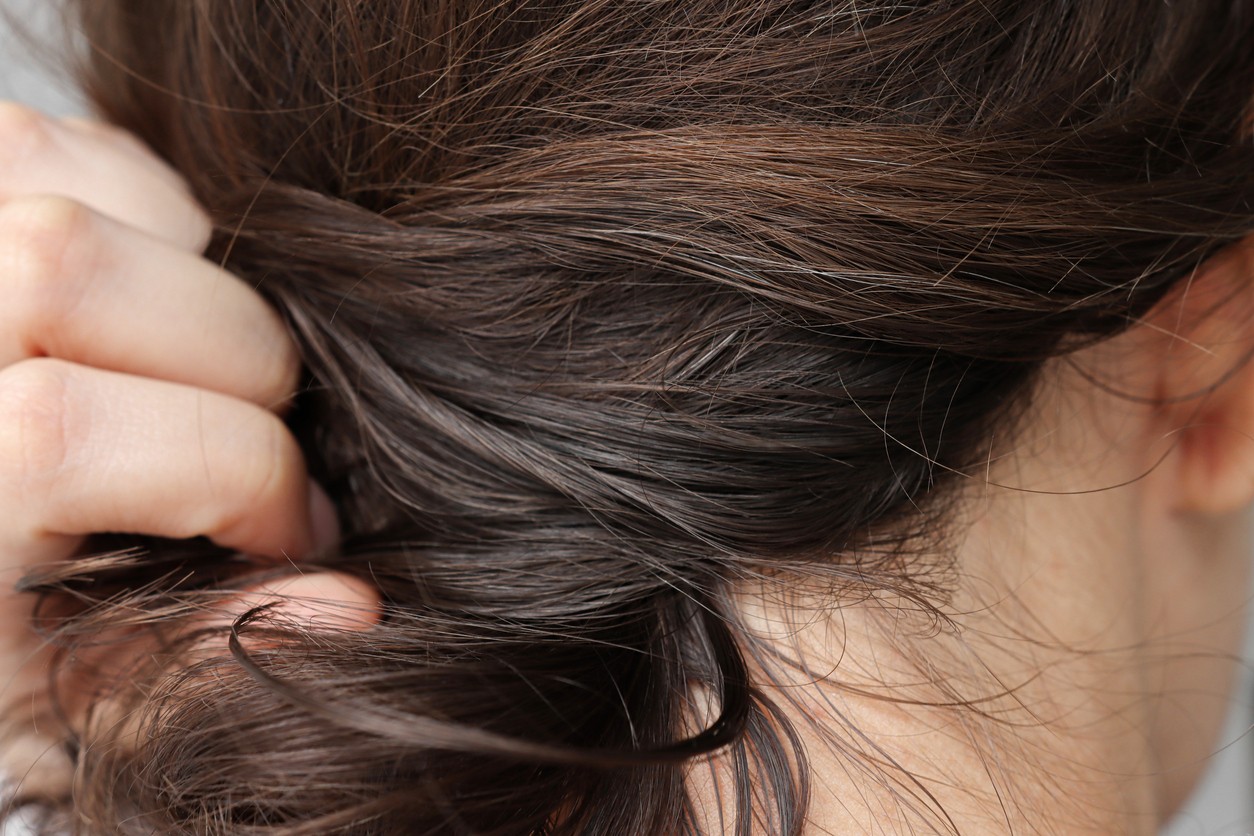
Since receiving my head spa treatment, I’ve had to wash my hair less frequently. I have a lot of fine, straight hair that tends to get oily after a couple days. However, I recently went five days without a shampoo. My hair certainly wasn’t looking its best, but it was still passable to go out in public.
Scalp massages stimulate the sebaceous glands, which are located within the hair follicle and produce sebum. Therefore, a scalp massage can “enhance blood circulation and prevent sebum buildup around hair follicles,” Diana Pratasiewicz, director of education at Ouai, explained to Women’s Health.
RELATED: 6 Best Face Yoga Exercises to Look Years Younger.
Scalp treatments are also great for treating seborrheic dermatitis.
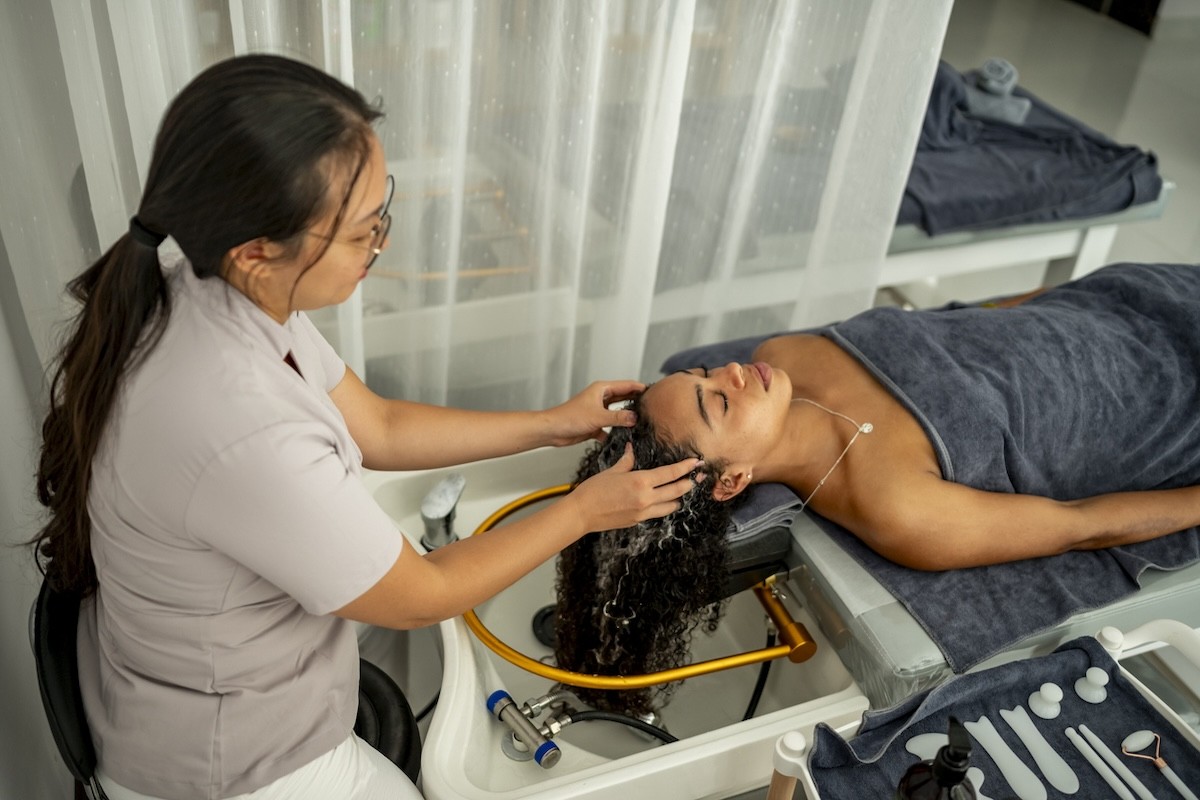
Seborrheic dermatitis, more commonly known as dandruff, is perhaps the biggest dermatological issue associated with the scalp. Though I don’t personally have the condition, I spoke with Heather Woolery-Lloyd, MD, a board-certified doctor in dermatology and lifestyle medicine who helped consult on Zoryve, the new topical foam used to treat seborrheic dermatitis and related conditions.
The information she shared pointed to how the stress reduction associated with scalp massage could help with dandruff.
“Based on clinical studies, we know stress increases cortisol levels, and, in general, inflammatory skin diseases like seborrheic dermatitis worsen with stress,” Woolery-Lloyd explains.
Additionally, a reputable head spa will begin a visit with the scalp camera to assess your needs. If you’re suffering from seborrheic dermatitis, they may opt for gentle, extra-moisturizing treatments to relieve dryness and itchiness.
Here’s how you can reap the head spa benefits at home.
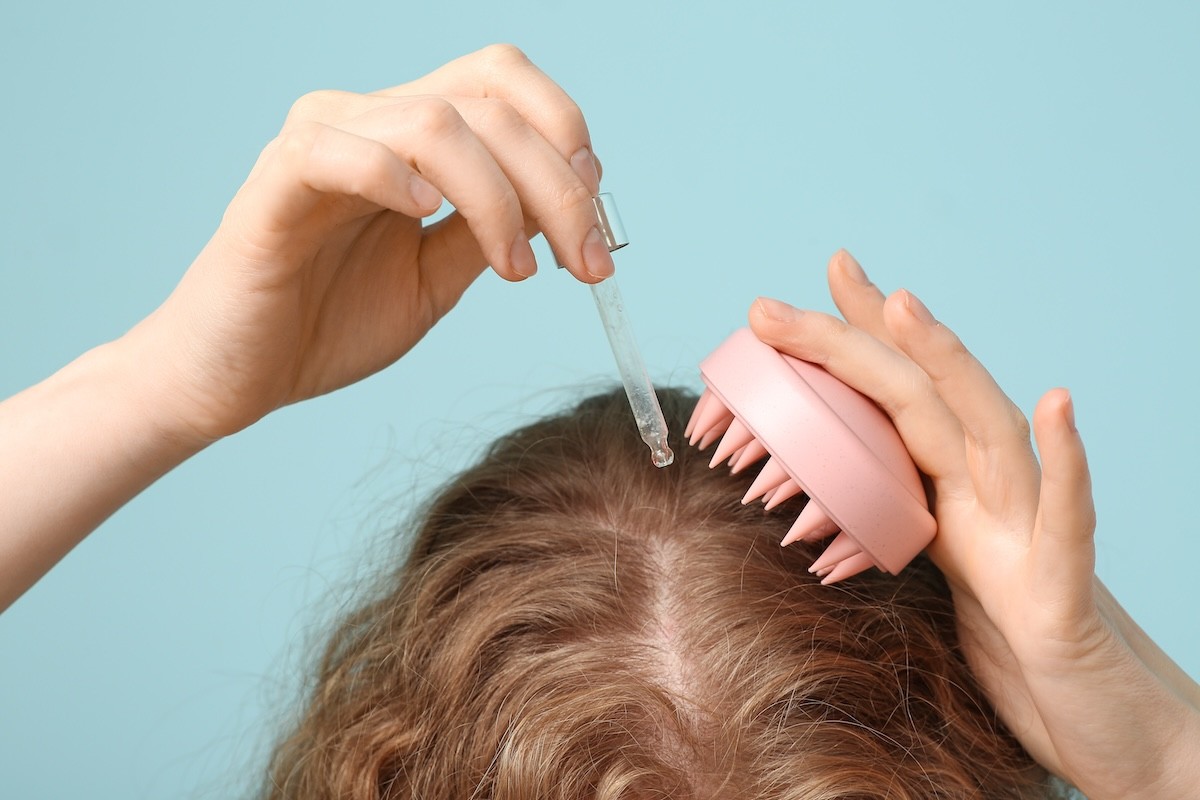
As much as I loved my head spa experience, it’s not within my budget to make it a regular thing. But Woolery-Lloyd shared some easy and inexpensive ways to reap these benefits at home.
First, she recommends using a scalp massager with “soft, round” scrubbers similar to those you’ll see everywhere from T.J.Maxx to Sephora.
Woolery-Lloyd also points out that many people’s skin is sensitive to the dyes and fragrances in shampoos. She says that a “common allergen” you’ll find in hair care products is the preservative Methylisothiazolinone (MIT). Avoiding these ingredients can help with any scalp irritation you may have.
Adding products that contain ceramides or hyaluronic acid can help nourish the scalp by restoring the skin married and locking in moisture, she adds.